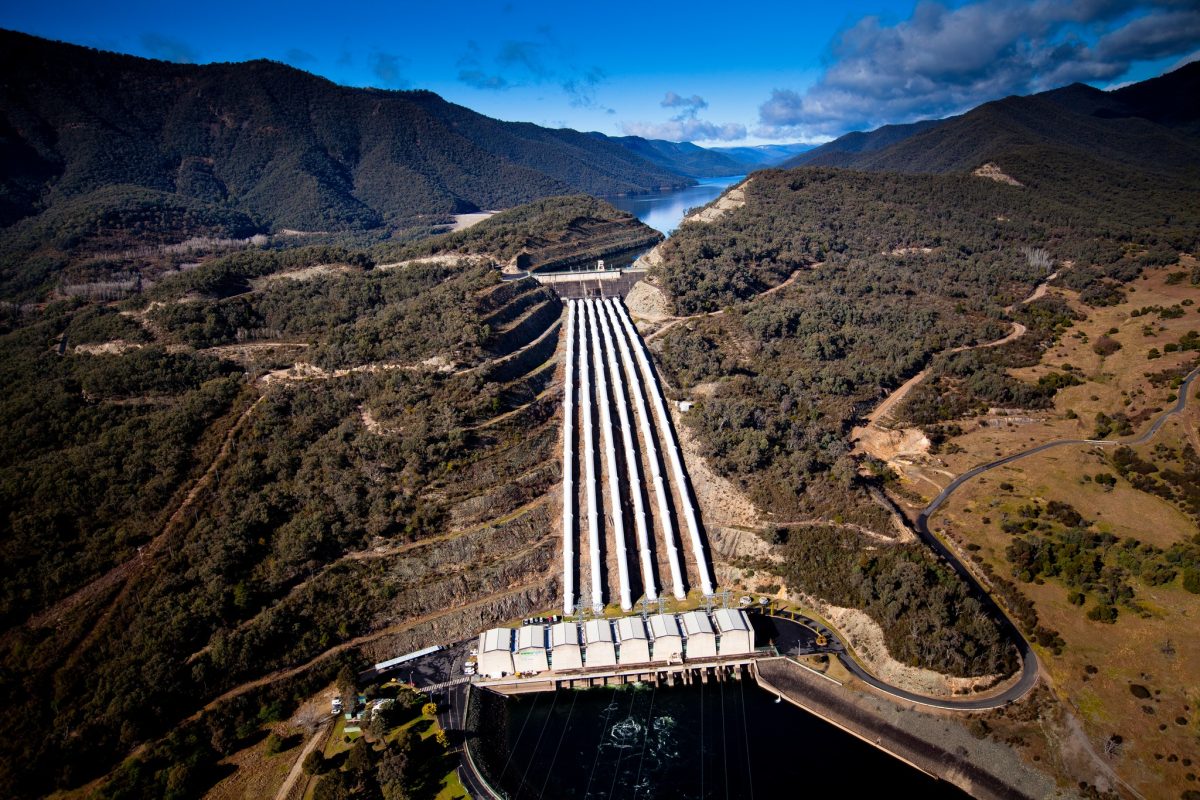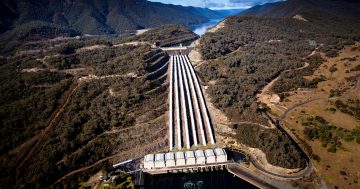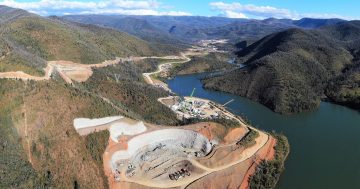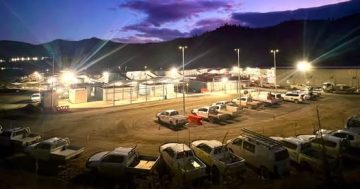
The new agreement covers pay and conditions for workers at the major renewable infrastructure project. Photo: Snowy Hydro Facebook.
Snowy Hydro workers’ payslips will grow with twice-yearly pay rises under a new agreement.
It’s all part of a Fair Work Commission enterprise agreement, which came into effect this month.
The workers will also receive an 8.50 per cent pay increase in their first full pay period after the agreement commences.
That means, depending on their classification, workers will be earning between $43.77 and $58.96 per hour (before the increases bring their pay up to at least $52.30 over the four years).
Snowy Hydro did not respond to specific questions from Region (including about the impact the new agreement would have on the overall cost), but said the project remained important.
“Snowy 2.0 will underpin the future of clean energy in Australia and is critical to supporting the transition to renewables,” a spokesperson said.
“The new enterprise agreements recognise the significant contributions of the workforce in delivering one of the world’s largest and most complex engineering projects.”
According to the agreement, the workers are expected to work an average of 36 hours per week (as well as reasonable overtime).
Night shift workers would take home double pay.
Workers are also set to receive a productivity allowance of $9.75 per hour worked, which is described as “compensation for working and residing at a remote site”.
“This productivity allowance is a flat payment and will not be subject to any premium or penalty and will remain fixed and in place for the duration of this agreement,” the document states.
Under the new agreement, there are also other allowances, such as for workers required to use personal mobile phones at work ($4.30 per day).
Meanwhile, those with first-aid training will take home between $3.85 and $6.09 extra, under the first-aid allowance.
Part-time employees will be paid no less than 1/36th of the minimum weekly rate of pay for their relevant classification, and receive pro-rata entitlements for those hours.
Casual workers are entitled to be paid for a minimum of four hours’ work, and will receive specific penalties for overtime, weekend work or public holidays.
Pre-shift meetings will be paid at the employee’s ordinary rate, but do not count towards their ordinary hours.
The agreement also contains requirements around the protective equipment and clothing to be provided to workers.
It also states that each ordinary day or shift with ordinary hours, 0.8 of an hour’s pay will accrue towards paying for a rostered day off (RDO).
Snowy Hydro 2.0 is being put under the microscope in an ongoing audit by the Australian National Audit Office (the ANAO).
The audit is examining if a 2023 contract reset was informed by sound planning and advice, and if Snowy Hydro Limited is effectively managing contract performance.
In 2023, the company announced a so-called “reset”, after the project’s cost reached a revised cost of $12 billion.
It announced work carried out to the end of June 2023 had cost $4.3 billion, with a fixed-price EPC contract being described as “no longer fit for purpose”. At the time, the completion date was also pushed out to 2028.
The total cost has since been increased to $12 billion.
The Australian Workers Union was contacted for comment.














